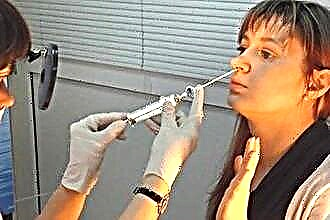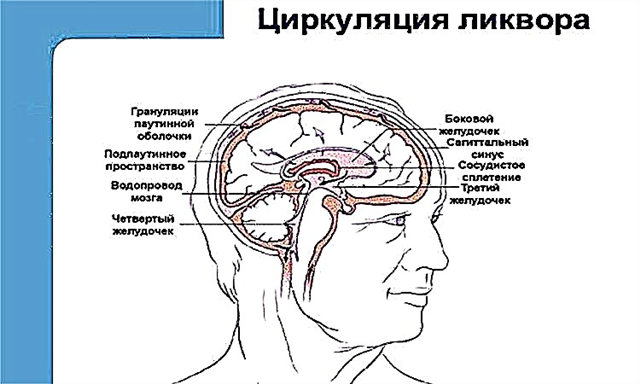Beta-blockers (BAB) are the most common drugs in cardiology, which are prescribed for arterial hypertension, coronary heart disease (IHD) and rhythm disturbances. A wide therapeutic spectrum, convenient use (1-2 tablets per day) and a small number of side effects are the main advantages of the drugs. Bisoprolol is a new generation BAB that has a cardioselective effect with minimal effect on other organs. In the pharmacy chain, the drug is produced under different names "Concor", "Coronal", "Cordinorm".
Advantages of "Concor" over "Bisoprolol"
The pharmacological properties of the drugs are due to the concentration of the active ingredient - Bisoprolol fumarate, which is used in both medicines.
The main characteristics by which "Bisoprolol" differs from "Concor" are presented in the table.
| Criterion | "Bisoprolol" | "Concor" |
|---|---|---|
| Release form | Tablets in packages (cans) of 20, 30, 40, 50 and 100 pieces | Tablets in packs of 25, 30, 50, 90 and 100 pieces. |
| Dosages of the drug | 2.5 mg; 5 mg; 10 mg | 5 mg; 10 mg |
| Tablet appearance | Shape: round, biconvex. Edge: beveled. White colour | Shape: irregular (heart-shaped), biconvex. Color: light orange. Dividing strip: on both sides |
| Country of issue | the Russian Federation | Germany |
| Manufacturer | OZON Pharm; Izvarino Pharma; | "Merсk" |
| Price | 85-150 rub / pack | 170-200 rubles / pack |
 "Concor" is an original German-made drug, which is preferred because of:
"Concor" is an original German-made drug, which is preferred because of:
- high efficiency;
- the established composition (the domestic drug belongs to generics, in which the exact formula of the original drug is not supported);
- fewer side effects (safe excipients).
A similar concentration of the active substance (bisoprolol fumarate) causes the same clinical effects and indications presented in the table.
| Pharmacological effects | Indications for appointment |
|---|---|
|
|
Preparations with bisoprolol are considered the most popular in the treatment of cardiac patients. The main advantages of the funds:
 stable dosage (the severity of the effect is achieved from 1 tablet);
stable dosage (the severity of the effect is achieved from 1 tablet);- convenient use: once a day (at the same time);
- cardioselectivity (the risk of side effects from the central nervous, respiratory and digestive systems is reduced);
- bisoprolol does not interfere with sexual desire in men (earlier representatives of BAB were accompanied by the development of impotence);
- there is no need to become attached to food intake;
- cardioselective BABs do not affect the metabolism of lipids and glucose (allowed for patients with hypertriglyceremia and diabetes mellitus).
Which drug to buy - "Concor" or "Bisoprolol" - is determined by the patient, depending on individual preferences and material capabilities.
Are there any drawbacks to any of the drugs and what are they?
The selection of an effective remedy for the management of patients with ischemic heart disease or arterial hypertension is carried out by the attending physician, taking into account the individual characteristics of the patient: age, gender, the presence of concomitant diseases.
The pleiotropic action of the drug (aimed at different links of pathogenesis) determines a wide range of contraindications and restrictions on admission.
Conditions in which the use of drugs with bisoprolol is not recommended:
- hypertensive crisis - the active substance of medicines is aimed at controlling the course of the pathology, and not stopping acute conditions;
- dilated cardiomyopathy - a decrease in the force of cardiac output worsens the condition of such patients;
- violation of the conduction of the atrioventricular node (blockade): additional slowing down of the rhythm contributes to the development of the Morgagni-Adams-Stokes symptom with loss of consciousness and seizures;
- bronchial asthma - the effect of bisoprolol on the smooth muscles of the bronchi in compromised patients at risk of developing obstruction is not excluded;
- uncompensated uncontrolled type 2 diabetes mellitus;
- stenosis of the aortic orifice (grade 3 and higher) - a decrease in the force of myocardial contraction, the release and delivery of blood to organs and tissues decreases;
- during pregnancy and breastfeeding - active metabolites penetrate the hematoplacental barrier, slow down the heart rate in the child.
The disadvantages of the drugs "Concor" and "Bisoprolol" are associated with a long course of the underlying disease and a wide range of effects:
- selection of an effective dose lasts 1-2 weeks;
- drug treatment - daily, lifelong;
- contraindicated in patients with concomitant somatic pathologies;
- side effects: bradycardia, drop in blood pressure, dizziness, flies before the eyes, nausea, abdominal pain.
Patients with intolerance to "Bisoprolol" are not recommended to use "Concor" as a substitute because of the similar composition and pharmacological effects.
Conclusions
"Concor" and "Bisoprolol" are modern drugs from the BAB group with cardioselective action, which are used in the treatment of cardiovascular diseases. Medicines do not differ in indications and contraindications, additional effects, therefore their use is considered interchangeable. Differences between funds - company and country of origin, pricing policy. The most optimal drug for treatment, the regimen is recommended by the attending physician, depending on the patient's capabilities.

 stable dosage (the severity of the effect is achieved from 1 tablet);
stable dosage (the severity of the effect is achieved from 1 tablet);

